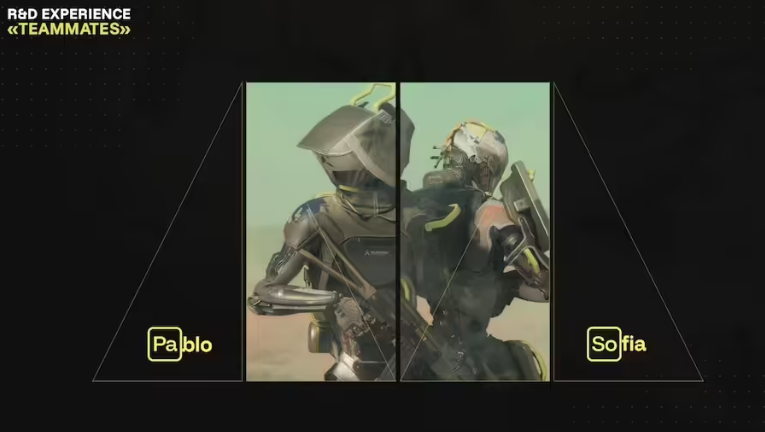The UK government is consulting on a "opt-out" copyright system for AI training, which will require rights holders to take proactive measures to prevent their intellectual property from being used as free material for AI training.
With the rise of generative AI models trained on vast amounts of data, intellectual property issues are becoming increasingly prominent. Many creators strongly oppose the use of their works for AI training without permission (or compensation), especially since these technologies can generate competing content, including text, visuals, audio, or a combination of all three.

Fields such as visual arts, music, film production, and video games could all become targets for generative AI. This type of AI replaces traditional (skilled) human production processes with highly scalable AI tools, which can instantly generate content based on statistical analysis of information patterns in training data, simply triggered by prompts.
As global attention focuses on large language models (LLMs) like OpenAI's GPT and the popular chatbot ChatGPT based on it, the era of AI startups quietly scraping web data for model development has come to an end.
Currently, AI companies are acquiring specific types of content for training data through licensing agreements, while an increasing number of lawsuits are challenging the unauthorized use of intellectual property for AI training.
This situation urgently requires legal clarity, and the UK government has expressed a desire to use this consultation to provide a basis for policymakers to formulate regulations in this complex area. Future UK policy may include legislation to "provide legal certainty," although the government has stated that no decisions have been made yet.
The UK government is currently trying to balance support for the UK creative industry with promoting AI investment and applications. However, this approach appears to blur a tendency toward favoring the AI industry.
The UK government wrote in the ministerial preface to the consultation: "Our creative industries and AI sector are both strengths for the UK. They are crucial to our national mission to develop the economy. This consultation aims to establish a framework for copyright and AI that rewards human creativity, encourages innovation, and provides legal certainty for the long-term growth of both sectors."
Undoubtedly, setting up an "opt-out" system for the use of intellectual property in AI training will place the responsibility of protecting their works on creators. This situation may disadvantage smaller creators compared to larger rights holders. Therefore, this approach is unlikely to be universally or widely welcomed in the creative field.
AI companies have been actively lobbying for this "opt-out" system.
The government stated in the consultation document: "The proposal includes a mechanism for rights holders to retain their rights, allowing them to license their works for AI training and receive compensation. At the same time, we propose establishing an exception to support AI developers in using various materials on a large scale, provided that the rights to those materials are not retained." "This approach will balance the ability of rights holders to seek compensation while providing a clear legal basis for using copyrighted materials in AI training, allowing developers to train leading models in the UK while respecting the rights of rights holders."
The government also noted that its "key objectives" for the creative and AI sectors include "promoting greater trust and transparency between the two industries."
The explicit goal is to support rights holders in controlling their content and receiving compensation for its use, as well as to develop "world-leading AI models in the UK" by ensuring broad legal access to high-quality data. Achieving this without undermining the interests of either industry clearly requires some clever maneuvering.
Currently, the AI industry seems to be receiving better treatment from the Labour government.
Nevertheless, ministers emphasized that any "interventions" ultimately proposed by the government must address the lack of transparency in the AI industry. Therefore, while the government positions the proposed "opt-out" system as "balanced," it also clearly states that "greater transparency for AI developers" is a prerequisite for the effectiveness of this approach.
Specifically, the government stated that this means "making public the materials used to train their models, how they obtained these materials, and the content generated by their models." The government added: "This is crucial for strengthening trust, and we are seeking input on how to best achieve this."
Another element deemed necessary for the effective operation of the "opt-out" system, as emphasized by the government, is the development of "simple technical means for creators to exercise their rights individually or collectively."
"This will require AI companies and the creative industry to work together to create new technical systems to achieve the anticipated outcomes of greater control and licensing of intellectual property," the government suggested.
The government added: "This approach aims to protect the interests of our creative industries and the AI sector. However, successfully achieving this goal is not easy. It requires practical technical solutions as well as sound policies. We are open to this, but we are optimistic that through cross-departmental and cross-industry collaboration, we can succeed."
The consultation will last for 10 weeks, ending on February 25, 2025. Responses can be submitted through an online survey.
The government also stated: "As AI rapidly evolves, the UK's response must be adjusted." It positioned this consultation as "an opportunity for anyone interested in these issues to share their views and provide evidence on the economic impacts of these proposals," and committed to conducting "broader engagement activities" during the consultation to "ensure that all viewpoints are heard."










